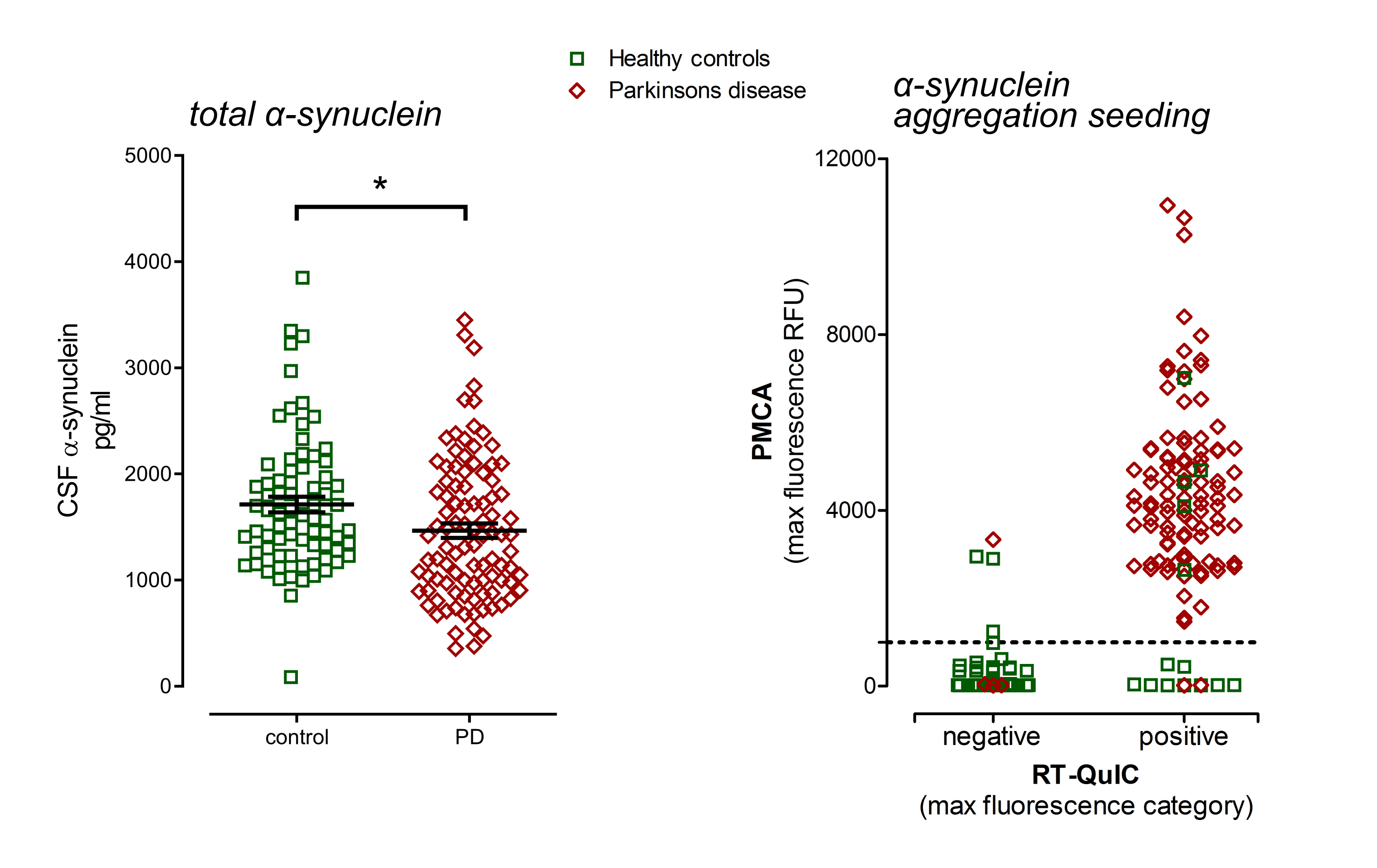
Parkinson’s Disease Biomarker Development
Parkinson’s disease (PD) diagnosis is made primarily based on clinical criteria, which depends on the skill and experience of the diagnosing physician. Assessing other disease-relevant biological indicators could be extremely helpful for disease diagnosis and for following disease progression. Most biomarkers identified so far, however, lack the sensitivity and specificity to be used on an individual patient basis. We are working collaboratively to leverage biospecimens and clinical data from the BioFIND cohort (Michael J. Fox Foundation for Parkinson’s Research) to identify and validate promising biomarkers that will be useful for individual diagnosis. More importantly, biomarkers may help us to better understand the heterogeneity in the pathophysiology of PD. Although the final outcome of neurodegeneration would result in similar phenotype, pathogenic heterogeneity may require different therapeutic approaches for disease modification in different subtypes of PD.

Left panel source: Goldman JG … Kang UJ. Cerebrospinal fluid, plasma, and saliva in the BioFIND study: Relationships among biomarkers and Parkinson’s disease features. Mov Disord. 2018. DOI.
Right panel source: Kang UJ … Soto C. Comparative study of cerebrospinal fluid α-synuclein seeding aggregation assays for diagnosis of Parkinson's disease. Mov Disord. 2019. DOI.